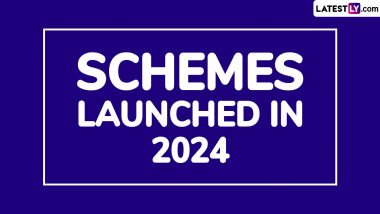Mumbai, January 16: Diversity will be among the top trend in the recruiting industry this year as 81 percent leaders in India say it impacts their hiring process, as per a survey. According to the LinkedIn ‘Global Recruiting Trends’ survey, diversity will be among the top four trends that will play a key role in the way job-seekers find jobs, get hired and stay engaged at work in 2018.
Other key trends are artificial intelligence (AI), data and insights and new-age interview process, it added. It said about 78 percent of talent leaders globally and 81 percent in India confirmed that diversity impacts how they hire. The survey said companies are prioritising diversity as it enhances productivity and promotes innovation.
Gender (71 percent), race (49 percent) and age (48 percent) are the areas where companies are focusing their diversity efforts, it said. LinkedIn surveyed about 9,000 recruiters and hiring managers from 39 countries. Further, 76 percent of respondents said AI’s impact on recruiting will be significant and will help them work faster by automating administrative tasks and smarter by generating insights they wouldn’t think of alone, it said.
Areas, where AI will impact recruiting the most, include sourcing candidates (58 percent), screening candidates (56 percent) and nurturing candidates (55 percent), it added. It said 67 percent respondents felt AI helps saving time and 43 percent believe that it removes human bias.
Meanwhile, the survey revealed that Mexico (61 percent), Brazil (59 percent), India (56 percent) and China (56 percent) are the four countries with the highest number of respondents who believed that using data is the top trend affecting how they hire. The global average is 50 percent, it added.
The survey also showed that 64 percent of the talent acquisition professionals use data now and 79 percent are even more likely to use it in the next two years. About 69 percent of talent professionals believe that using data can elevate their careers, it said.
Currently, the five most common uses of data in talent acquisition are to increase retention (56 percent), evaluate skills gap (50 percent), build better offers (50 percent), understand candidate wants (46 percent) and do workforce planning (41 percent). However, the survey found that the two major barriers in using data include poor data quality (42 percent) and figuring out where to find the data (20 percent).
The fourth key trend is new interviewing models, which is reinventing the interview by blending traditional with smart models. Higher than the global average of 56 percent, 61 percent of Indian respondents said interviewing innovations are extremely important to the future of hiring, according to the survey. It also said that companies continued to believe in the popularity and effectiveness of traditional interview techniques with giving maximum emphasis to structured interviews (88 percent) and behavioural interviews (89 percent).
Talent leaders find interviewer bias (42 percent), limited ability to assess soft skills (63 percent) and weaknesses (57 percent) as the most prevalent shortcomings of traditional interviews, it said. To overcome this, hiring managers are looking at interview models and techniques, including soft skills assessments, job auditions, meeting in casual settings, virtual reality assessments and video interviews to improve the old model, it added.













 Quickly
Quickly




















